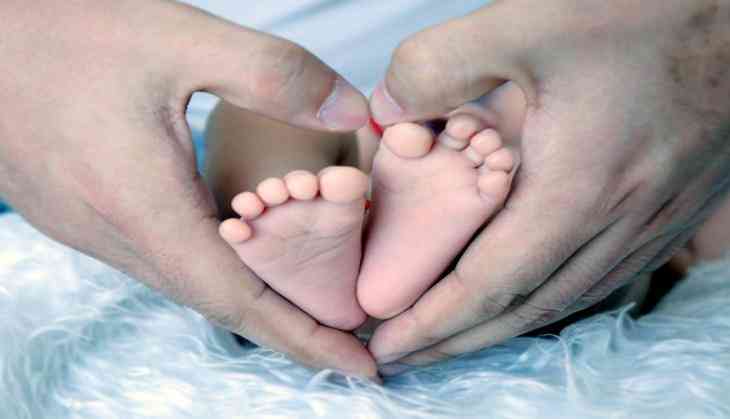
The average age of newborns' fathers in the United States has grown by 3.5 years over the past four decades, according to a new study.
Men over the age of 40 now account for about 9 percent of all U.S. births. Men over the age of 50 account for nearly 1 percent.
Those statistics come from the Stanford University School of Medicine study, which is the first comprehensive analysis of all live births reported to a federal data depository in the United States from 1972-2015: to be precise, 168,867,480 births.
The researchers obtained the data from the National Vital Statistics System, an intergovernmental data-sharing program sponsored by the federal Centres for Disease Control and Prevention.
Between 1972 and 2015, the researchers found, the average paternal age at the time of an American child's birth grew from 27.4 years to 30.9 years. Asian-American dads and in particular, Japanese and Vietnamese-American dads, at upwards of 36 years of age, on average are the oldest. Paternal age rose with more years of education; the typical newborn's father with a college degree is 33.3 years old.
Over the same time period, the share of newborns' fathers who were older than 40 doubled from 4.1 percent to 8.9 percent, while the share who were over 50 rose from 0.5 percent to 0.9 percent.
Similar trends of increasing age have been reported in other industrialized countries.
The steadily advancing age of newborns' fathers is likely to carry public-health implications, senior author Michael Eisenberg said. A rising paternal age can affect the total number of children a man will have, which can impact the demographics of the population. In addition, he said, "every potential dad acquires an average of two new mutations in his sperm each year. And there are associations between older fatherhood and higher rates of autism, schizophrenia, chromosomal abnormalities, some pediatric cancers and certain rare genetic conditions."
On the flip side, he noted, older fathers are more likely to have better jobs and more resources, more likely to have reasonably stable lifestyles and more likely to live with their children and, thus, be more involved in child-rearing.
Ages of new moms are increasing, too. Eisenberg said, "In fact, they've advanced even more than paternal ages have in the same time frame. This may be a consequence of women waiting longer to get married or putting off childbearing as the years they spend in higher education increase and as careers become more central to their lives. The result is that the average age difference between moms and dads has been shrinking, from 2.7 years in 1972 to 2.3 years in 2015."
This convergent pattern appears to apply to all racial, regional, age and education categories, he said. "We've seen a lot of changes in the last several decades. Contraception is more reliable and widespread. Women have become more integrated into the workforce. This seems to be reflected in an increasing parity in parental ages over the last four decades."
Advancing parental age leaves fewer years for childbearing and is likely to exert a follow-on effect of reducing the average family size over the long haul, with potentially huge economic ramifications, Eisenberg said.
"Fewer people being born means fewer productive workers a generation down the road," he said. "This can obviously have profound tax and economic implications."
Overall paternal reporting for U.S. births has risen to its current 88.4 percent since reaching a nadir of 85.5 percent in 1991.
The youngest dad recorded during the 44-year period covered in the study was 11 years old; the oldest was 88. But the world-record holder, Eisenberg said, is a gentleman from India who early in this decade fathered two children at the age of 94 and 96 with a wife who was in her late 50s. "Unfortunately, they wound up separating," he said.
The study appears in Human Reproduction.
-ANI


